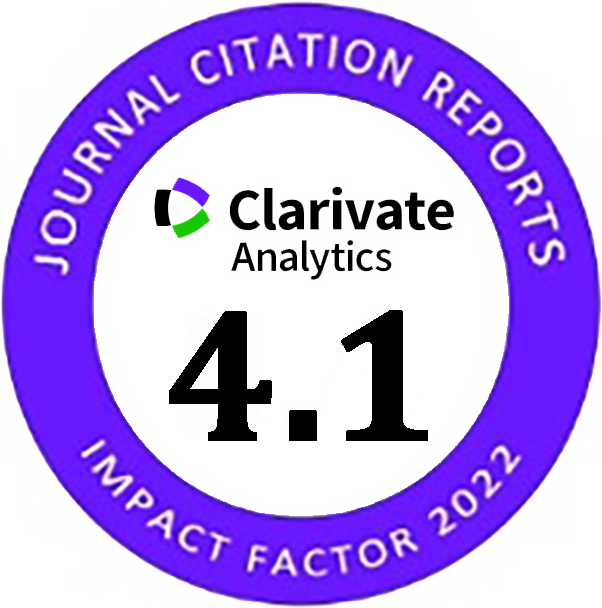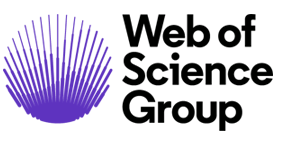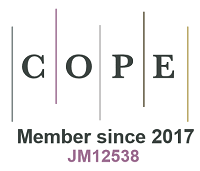An Analysis of Driving Factors of Collaboration in Handling Used Cell Phones as a Waste Management Practice
Abstract
Doi: 10.28991/CEJ-2022-08-10-016
Full Text: PDF
Keywords
References
Pourahmadi, A., Ebadi, T., & Nikazar, M. (2017). Industrial Wastes Risk Ranking with TOPSIS, Multi Criteria Decision Making Method. Civil Engineering Journal, 3(6), 372–381. doi:10.28991/cej-2017-00000098.
Chatterjee, S., & Kumar, K. (2009). Effective electronic waste management and recycling process involving formal and non-formal sectors. International Journal of Physical Sciences, 4(13), 893–905.
Chi, X., Streicher-Porte, M., Wang, M. Y. L., & Reuter, M. A. (2011). Informal electronic waste recycling: A sector review with special focus on China. Waste Management, 31(4), 731–742. doi:10.1016/j.wasman.2010.11.006.
Joseph, K. (2007). Electronic waste management in India–issues and strategies. Eleventh international waste management and landfill symposium, 1-5 October, 2007, Cagliari, Italy.
Realff, M. J., Raymond, M., & Ammons, J. C. (2004). E-waste. Materials Today, 7(1), 40–45. doi:10.1016/s1369-7021(04)00054-9.
Schwarzer, S., De Bono, A., Giuliani, G., Kluser, S., & Peduzzi, P. (2005). E-waste, the hidden side of IT equipment's manufacturing and use. Environmental Alert Bulletin, 5.
Robinson, B. H. (2009). E-waste: An assessment of global production and environmental impacts. Science of the Total Environment, 408(2), 183–191. doi:10.1016/j.scitotenv.2009.09.044.
Polák, M., & Drápalová, L. (2012). Estimation of end of life mobile phones generation: The case study of the Czech Republic. Waste Management, 32(8), 1583–1591. doi:10.1016/j.wasman.2012.03.028.
Orlins, S., & Guan, D. (2016). China’s toxic informal e-waste recycling: Local approaches to a global environmental problem. Journal of Cleaner Production, 114, 71–80. doi:10.1016/j.jclepro.2015.05.090.
Dadzie, D. K., Kaliluthin, A. K., & Raj Kumar, D. (2020). Exploration of waste plastic bottles use in construction. Civil Engineering Journal (Iran), 6(11), 2262–2272. doi:10.28991/cej-2020-03091616.
Gollakota, A. R. K., Gautam, S., & Shu, C. M. (2020). Inconsistencies of e-waste management in developing nations – Facts and plausible solutions. Journal of Environmental Management, 261, 110234. doi:10.1016/j.jenvman.2020.110234.
Shittu, O. S., Williams, I. D., & Shaw, P. J. (2021). Global E-waste management: Can WEEE make a difference? A review of e-waste trends, legislation, contemporary issues and future challenges. Waste Management, 120, 549–563. doi:10.1016/j.wasman.2020.10.016.
Isernia, R., Passaro, R., Quinto, I., & Thomas, A. (2019). The reverse supply chain of the e-waste management processes in a circular economy framework: Evidence from Italy. Sustainability (Switzerland), 11(8), 2430. doi:10.3390/su11082430.
Rautela, R., Arya, S., Vishwakarma, S., Lee, J., Kim, K. H., & Kumar, S. (2021). E-waste management and its effects on the environment and human health. Science of the Total Environment, 773, 145623. doi:10.1016/j.scitotenv.2021.145623.
Ilankoon, I. M. S. K., Ghorbani, Y., Chong, M. N., Herath, G., Moyo, T., & Petersen, J. (2018). E-waste in the international context – A review of trade flows, regulations, hazards, waste management strategies and technologies for value recovery. Waste Management, 82, 258–275. doi:10.1016/j.wasman.2018.10.018.
Li, B., Du, H. Z., Ding, H. J., & Shi, M. Y. (2011). E-waste recycling and related social issues in China. Energy Procedia, 5, 2527–2531. doi:10.1016/j.egypro.2011.03.434.
Kyere, V. N., Greve, K., Atiemo, S. M., Amoako, D., Aboh, I. J. K., & Cheabu, B. S. (2018). Contamination and health risk assessment of exposure to heavy metals in soils from informal e-waste recycling site in Ghana. Emerging Science Journal, 2(6), 428–436. doi:10.28991/esj-2018-01162.
Wilson, D. C. (2007). Development drivers for waste management. Waste Management and Research, 25(3), 198–207. doi:10.1177/0734242X07079149.
Budijati, S.M., Subagyo, Wibisono, M.A., Masruroh, N.A. (2015). A Study of Consumers’ Post Consumption Behaviour for Mobile Phone in Indonesia. Industrial Engineering, Management Science and Applications 2015, Lecture Notes in Electrical Engineering, 349. Springer, Berlin, Germany. doi:10.1007/978-3-662-47200-2_60.
Simatupang, T. M., & Sridharan, R. (2002). The Collaborative Supply Chain. The International Journal of Logistics Management, 13(1), 15–30. doi:10.1108/09574090210806333.
Dung, L. T. (2015). Factors Affecting the Collaboration in Supply Chain of Mechanical Enterprises in Vietnam. International Journal of Managing Value and Supply Chains, 6(4), 17–29. doi:10.5121/ijmvsc.2015.6402.
Hudnurkar, M., Jakhar, S., & Rathod, U. (2014). Factors Affecting Collaboration in Supply Chain: A Literature Review. Procedia - Social and Behavioral Sciences, 133, 189–202. doi:10.1016/j.sbspro.2014.04.184.
Soita, N. M. (2015). Factors affecting supply chain collaboration in government ministries in Kenya. Master Thesis, University of Nairobi, Nairobi, Kenya.
Wu, I. L., & Chiu, M. L. (2018). Examining supply chain collaboration with determinants and performance impact: Social capital, justice, and technology use perspectives. International Journal of Information Management, 39, 5–19. doi:10.1016/j.ijinfomgt.2017.11.004.
Maheswari, H., Yudoko, G., & Adhiutama, A. (2019). Government and intermediary business engagement for controlling electronic waste in Indonesia: A sustainable reverse logistics theory through customer value chain analysis. Sustainability (Switzerland), 11(3), 732. doi:10.3390/su11030732.
Ezeah, C., Fazakerley, J. A., & Roberts, C. L. (2013). Emerging trends in informal sector recycling in developing and transition countries. Waste Management, 33(11), 2509–2519. doi:10.1016/j.wasman.2013.06.020.
Sasaki, S., Araki, T., Tambunan, A. H., & Prasadja, H. (2014). Household income, living and working conditions of dumpsite waste pickers in Bantar Gebang: Toward integrated waste management in Indonesia. Resources, Conservation and Recycling, 89, 11–21. doi:10.1016/j.resconrec.2014.05.006.
Wilson, D. C., Araba, A. O., Chinwah, K., & Cheeseman, C. R. (2009). Building recycling rates through the informal sector. Waste Management, 29(2), 629–635. doi:10.1016/j.wasman.2008.06.016.
Li, R. C., & Tee, T. J. C. (2012). A Reverse Logistics Model For Recovery Options Of E-waste Considering the Integration of the Formal and Informal Waste Sectors. Procedia - Social and Behavioral Sciences, 40, 788–816. doi:10.1016/j.sbspro.2012.03.266.
Leszczynska, A. (2010). Manager’s attitude toward environment. Industrial Management and Data Systems, 110(8), 1234–1250. doi:10.1108/02635571011077852.
Lopez-Gamero, M. D., Molina-Azorin, J. F., & Claver-Cortes, E. (2011). The relationship between managers’ environmental perceptions, environmental management and firm performance in Spanish hotels: A whole framework. International Journal of Tourism Research, 13(2), 141–163. doi:10.1002/jtr.805.
Nambiar, P., & Chitty, N. (2014). Meaning making by managers: Corporate discourse on environment and sustainability in India. Journal of Business Ethics, 123(3), 493–511. doi:10.1007/s10551-013-1848-2.
Ye, F., Zhao, X., Prahinski, C., & Li, Y. (2013). The impact of institutional pressures, top managers’ posture and reverse logistics on performance - Evidence from China. International Journal of Production Economics, 143(1), 132–143. doi:10.1016/j.ijpe.2012.12.021.
Fraj-Andrés, E., Martínez-Salinas, E., & Matute-Vallejo, J. (2009). Factors affecting corporate environmental strategy in Spanish industrial Firms. Business Strategy and the Environment, 18(8), 500–514. doi:10.1002/bse.611.
He, Z. X., Shen, W. X., Li, Q. bin, Xu, S. C., Zhao, B., Long, R. Y., & Chen, H. (2018). Investigating external and internal pressures on corporate environmental behavior in papermaking enterprises of China. Journal of Cleaner Production, 172, 1193–1211. doi:10.1016/j.jclepro.2017.10.115.
Testa, F., Gusmerottia, N. M., Corsini, F., Passetti, E., & Iraldo, F. (2016). Factors Affecting Environmental Management by Small and Micro Firms: The Importance of Entrepreneurs’ Attitudes and Environmental Investment. Corporate Social Responsibility and Environmental Management, 23(6), 373–385. doi:10.1002/csr.1382.
Yen, Y. X., & Yen, S. Y. (2012). Top-management’s role in adopting green purchasing standards in high-tech industrial firms. Journal of Business Research, 65(7), 951–959. doi:10.1016/j.jbusres.2011.05.002.
Janmaimool, P., & Khajohnmanee, S. (2019). Roles of environmental system knowledge in promoting university students’ environmental attitudes and pro-environmental behaviors. Sustainability (Switzerland), 11(16), 4270. doi:10.3390/su11164270.
Chan, E. S. W., Hon, A. H. Y., Okumus, F., & Chan, W. (2017). An Empirical Study of Environmental Practices and Employee Ecological Behavior in the Hotel Industry. Journal of Hospitality and Tourism Research, 41(5), 585–608. doi:10.1177/1096348014550873.
Arshad, M., Abid, G., Contreras, F., Elahi, N. S., & Ahmed, S. (2022). Greening the hospitality sector: Employees’ environmental and job attitudes predict ecological behavior and satisfaction. International Journal of Hospitality Management, 102, 103173. doi:10.1016/j.ijhm.2022.103173.
Okumus, F., Köseoglu, M. A., Chan, E., Hon, A., & Avci, U. (2019). How do hotel employees’ environmental attitudes and intentions to implement green practices relate to their ecological behavior? Journal of Hospitality and Tourism Management, 39, 193–200. doi:10.1016/j.jhtm.2019.04.008.
Long, X., Chen, Y., Du, J., Oh, K., Han, I., & Yan, J. (2017). The effect of environmental innovation behavior on economic and environmental performance of 182 Chinese firms. Journal of Cleaner Production, 166, 1274–1282. doi:10.1016/j.jclepro.2017.08.070.
Tariq, M., Yasir, M., & Majid, A. (2020). Promoting employees’ environmental performance in hospitality industry through environmental attitude and ecological behavior: Moderating role of managers’ environmental commitment. Corporate Social Responsibility and Environmental Management, 27(6), 3006–3017. doi:10.1002/csr.2019.
Zientara, P., & Zamojska, A. (2018). Green organizational climates and employee pro-environmental behaviour in the hotel industry. Journal of Sustainable Tourism, 26(7), 1142–1159. doi:10.1080/09669582.2016.1206554.
El-Kassar, A. N., & Singh, S. K. (2019). Green innovation and organizational performance: The influence of big data and the moderating role of management commitment and HR practices. Technological Forecasting and Social Change, 144, 483–498. doi:10.1016/j.techfore.2017.12.016.
Yusliza, M. Y., Norazmi, N. A., Jabbour, C. J. C., Fernando, Y., Fawehinmi, O., & Seles, B. M. R. P. (2019). Top management commitment, corporate social responsibility and green human resource management: A Malaysian study. Benchmarking, 26(6), 2051–2078. doi:10.1108/BIJ-09-2018-0283.
Ateş, M. A., Bloemhof, J., Van Raaij, E. M., & Wynstra, F. (2012). Proactive environmental strategy in a supply chain context: The mediating role of investments. International Journal of Production Research, 50(4), 1079–1095. doi:10.1080/00207543.2011.555426.
Ghazilla, R. A. R., Sakundarini, N., Abdul-Rashid, S. H., Ayub, N. S., Olugu, E. U., & Musa, S. N. (2015). Drivers and Barriers Analysis for Green Manufacturing Practices in Malaysian SMEs: A Preliminary Findings. Procedia CIRP, 26, 658–663. doi:10.1016/j.procir.2015.02.085.
Nordin, N., Ashari, H., & Hassan, M. G. (2014). Drivers and barriers in sustainable manufacturing implementation in Malaysian manufacturing firms. 2014 IEEE International Conference on Industrial Engineering and Engineering Management. doi:10.1109/ieem.2014.7058726.
Bhatia, M. S., & Jakhar, S. K. (2021). The effect of environmental regulations, top management commitment, and organizational learning on green product innovation: Evidence from automobile industry. Business Strategy and the Environment, 30(8), 3907–3918. doi:10.1002/bse.2848.
Burki, U., Ersoy, P., & Najam, U. (2019). Top management, green innovations, and the mediating effect of customer cooperation in green supply chains. Sustainability (Switzerland), 11(4), 1031. doi:10.3390/su11041031.
Lee, J., & Joo, H. Y. (2020). The impact of top management’s support on the collaboration of green supply chain participants and environmental performance. Sustainability (Switzerland), 12(21), 1–20. doi:10.3390/su12219090.
Maheswari, H., Yudoko, G., Adhiutama, A., & Agustina, H. (2020). Sustainable reverse logistics scorecards for the performance measurement of informal e-waste businesses. Heliyon, 6(9), 4834. doi:10.1016/j.heliyon.2020.e04834.
Paula, I. C. de, Campos, E. A. R. de, Pagani, R. N., Guarnieri, P., & Kaviani, M. A. (2020). Are collaboration and trust sources for innovation in the reverse logistics? Insights from a systematic literature review. Supply Chain Management, 25(2), 176–222. doi:10.1108/SCM-03-2018-0129.
Shevchenko, T., Laitala, K., & Danko, Y. (2019). Understanding consumer e-waste recycling behavior: Introducing a new economic incentive to increase the collection rates. Sustainability (Switzerland), 11(9), 2656. doi:10.3390/su11092656.
Henriques, J., & Catarino, J. (2016). Motivating towards energy efficiency in small and medium enterprises. Journal of Cleaner Production, 139, 42–50. doi:10.1016/j.jclepro.2016.08.026.
Kudłak, R. (2017). Drivers of corporate environmentalism: The case of the Polish economy in transition. Journal of Cleaner Production, 142, 3194–3203. doi:10.1016/j.jclepro.2016.10.150.
Meath, C., Linnenluecke, M., & Griffiths, A. (2016). Barriers and motivators to the adoption of energy savings measures for small- and medium-sized enterprises (SMEs): the case of the Climate Smart Business Cluster program. Journal of Cleaner Production, 112, 3597–3604. doi:10.1016/j.jclepro.2015.08.085.
Wang, Z., Wang, Q., Zhang, S., & Zhao, X. (2018). Effects of customer and cost drivers on green supply chain management practices and environmental performance. Journal of Cleaner Production, 189, 673–682. doi:10.1016/j.jclepro.2018.04.071.
Lee, S. Y. (2008). Drivers for the participation of small and medium-sized suppliers in green supply chain initiatives. Supply Chain Management, 13(3), 185–198. doi:10.1108/13598540810871235.
Tatoglu, E., Bayraktar, E., & Arda, O. A. (2015). Adoption of corporate environmental policies in Turkey. Journal of Cleaner Production, 91, 313–326. doi:10.1016/j.jclepro.2014.12.039.
Moktadir, M. A., Rahman, T., Rahman, M. H., Ali, S. M., & Paul, S. K. (2018). Drivers to sustainable manufacturing practices and circular economy: A perspective of leather industries in Bangladesh. Journal of Cleaner Production, 174(10), 1366–1380. doi:10.1016/j.jclepro.2017.11.063.
Dai, J., Chan, H. K., & Yee, R. W. Y. (2018). Examining moderating effect of organizational culture on the relationship between market pressure and corporate environmental strategy. Industrial Marketing Management, 74, 227–236. doi:10.1016/j.indmarman.2018.05.003.
Nugroho, M. A. (2015). Impact of Government Support and Competitor Pressure on the Readiness of SMEs in Indonesia in Adopting the Information Technology. Procedia Computer Science, 72, 102–111. doi:10.1016/j.procs.2015.12.110.
Weng, H. H. R., Chen, J. S., & Chen, P. C. (2015). Effects of green innovation on environmental and corporate performance: A stakeholder perspective. Sustainability (Switzerland), 7(5), 4997–5026. doi:10.3390/su7054997.
Chiou, T. Y., Chan, H. K., Lettice, F., & Chung, S. H. (2011). The influence of greening the suppliers and green innovation on environmental performance and competitive advantage in Taiwan. Transportation Research Part E: Logistics and Transportation Review, 47(6), 822–836. doi:10.1016/j.tre.2011.05.016.
Ajzen, I. (2002). Constructing a TPB questionnaire: Conceptual and methodological considerations. Available online: https://people.umass.edu/aizen/pdf/tpb.measurement.pdf (accessed on May 2022).
Wilayah, L. (2021). An area-National Land Agency Vertical Data. Available online: http://bappeda.jogjaprov.go.id/dataku/ data_dasar/index/422-luas-wilayah (accessed on August 2022).
Penduduk (2022). Residents-Central Bureau of Statistics Vertical Data. Available online: http://bappeda.jogjaprov.go.id/dataku/ data_dasar/index/701-penduduk (accessed on June 2022).
Kabupaten Bantul - Data Umum (2022).Geographical Conditions of Bantul Regency. Bantul Regency Government Portal. Available online: https://bantulkab.go.id/data_pokok/index/0000000006/kondisi-geografis.html (accessed on August 2022).
Pemerintah Kabupaten Kulon Progo (2022). Geographical. Kulon Progo Regency Government Portal. Available online: https://kulonprogokab.go.id/v31/detil/7670/geografis (accessed on April 2022).
Pemerintah Kabupaten Sleman (2022). Administrative Region. Sleman Regency Government Portal. Available online: http://www.slemankab.go.id/wilayah-administratif (accessed on August 2022).
Portal Berita Pemerintah Kota Yogyakarta (2022). Kondisi Geografis Kota Yogyakarta,” Portal Pemerintah Kota Yogyakarta. Available online: https://warta.jogjakota.go.id/detail/index/1069 (accessed on May 2022).
Barr, S., & Gilg, A. W. (2007). A conceptual framework for understanding and analyzing attitudes towards environmental behaviour. Geografiska Annaler, Series B: Human Geography, 89(4), 361–379. doi:10.1111/j.1468-0467.2007.00266.x.
Latif, S. A., Omar, M. S., Bidin, Y. H., & Awang, Z. (2012). Environmental Problems and Quality of Life: Situational Factor as a Predictor of Recycling Behaviour. Procedia - Social and Behavioral Sciences, 35, 682–688. doi:10.1016/j.sbspro.2012.02.137.
Wang, W., Li, X., & Li, H. (2011). Empirical research of the environmental responsibility affected on the urban residential housing energy saving investment behavior. Energy Procedia, 5, 991–997. doi:10.1016/j.egypro.2011.03.175.
Yin, J., Gao, Y., & Xu, H. (2014). Survey and analysis of consumers’ behaviour of waste mobile phone recycling in China. Journal of Cleaner Production, 65, 517–525. doi:10.1016/j.jclepro.2013.10.006.
Nguyen, H. T. T., Hung, R. J., Lee, C. H., & Nguyen, H. T. T. (2019). Determinants of residents’ E-waste recycling behavioral intention: A case study from Vietnam. Sustainability (Switzerland), 11(1), 164. doi:10.3390/su11010164.
Riva, F., Gani, M. O., & Osman Gani, M. (2020). Effect of Customer and Competitor Pressure on Environmental Performance of Upscale Hotels in Bangladesh. Jahangirnagar University Journal of Business Research (JUJBR), 21, 193–212.
DOI: 10.28991/CEJ-2022-08-10-016
Refbacks
- There are currently no refbacks.
Copyright (c) 2022 Siti Mahsanah Budijati, I Nyoman Pujawan, Hayati Mukti Asih

This work is licensed under a Creative Commons Attribution 4.0 International License.






